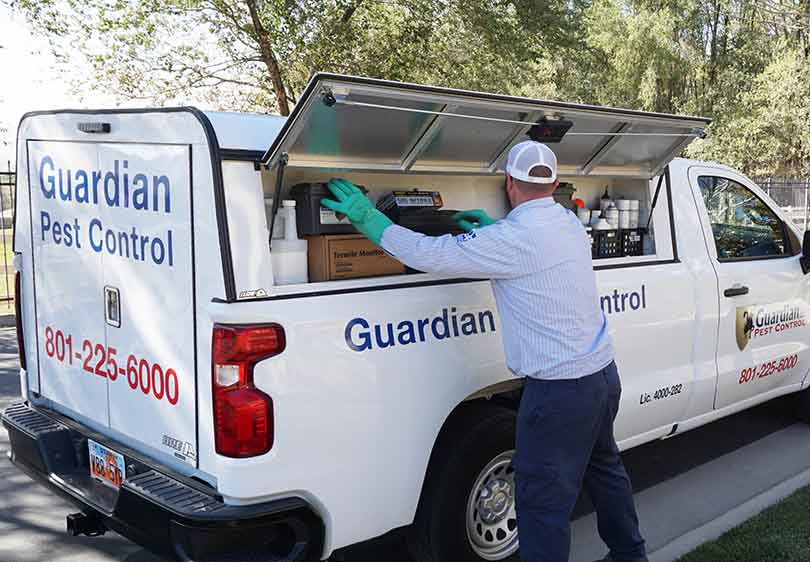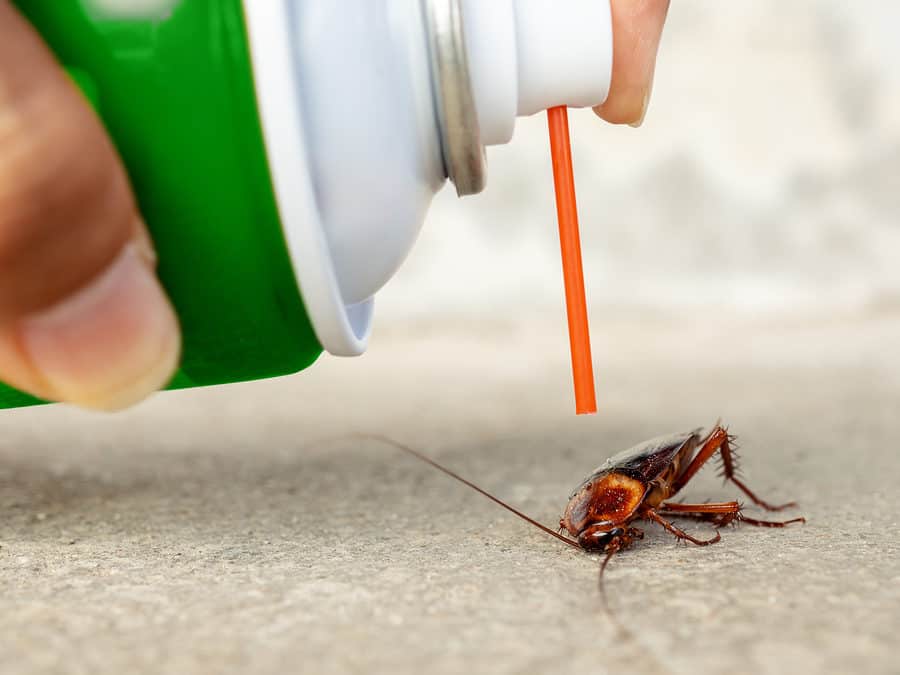Uncovering the Various Types of Parasite Control Techniques and Their Applications
Insect control is an important element of maintaining a healthy and secure environment, whether it remain in property, commercial, or farming setups. Numerous methods have actually been developed and fine-tuned over the years to successfully reduce and take care of bug problems. From chemical methods that target particular parasites to biological approaches that harness natural predators, the world of bug control is varied and substantial. Understanding the different types of bug control techniques and their applications is vital for applying the most appropriate and sustainable solutions. Let's discover the ins and outs of these approaches and just how they can be efficiently utilized to deal with pest-related challenges.
Chemical Pest Control Methods
Chemical pest control methods are widely made use of in farming and parasite monitoring to effectively get rid of or manage pest problems. These approaches entail making use of chemical materials, such as insecticides, herbicides, and chemicals, to remove or reduce insect populaces that posture a threat to plants, animals, or human health and wellness. Pesticides, for example, target certain parasites like rodents, weeds, or bugs, disrupting their life cycles or creating straight damage upon contact. Herbicides are specifically created to control unwanted plant life that contends with crops for sources and nutrients. Insecticides, on the various other hand, are used to fight insect bugs that can damage plants and transfer diseases.
While chemical pest control techniques can be very reliable in handling parasite populations, they additionally elevate worries regarding prospective environmental and health threats. Incorrect use or overuse of chemical pesticides can bring about contamination of soil, air, and water, harming non-target organisms and causing long-term ecological damage. In addition, duplicated exposure to chemical deposits might position health dangers to farmworkers, customers, and wildlife. It is crucial to adhere to safety standards, use incorporated pest monitoring strategies, and consider different methods to minimize the negative effects of chemical bug control strategies.
Biological Insect Control Techniques
 Biological insect control approaches make use of living organisms to manage and decrease bug populaces in a lasting and ecologically friendly fashion. One typical technique is the release of ladybugs to battle aphids in yards, as ladybugs are natural predators of these destructive pests.
Biological insect control approaches make use of living organisms to manage and decrease bug populaces in a lasting and ecologically friendly fashion. One typical technique is the release of ladybugs to battle aphids in yards, as ladybugs are natural predators of these destructive pests.
Biological parasite control methods use several benefits over chemical methods. In general, organic pest control approaches present a reliable and natural option to traditional chemical treatments, promoting a well balanced ecological community and much healthier environments.
Physical Bug Control Approaches
Using physical approaches to manage pests includes using mechanical or non-chemical means to manage and minimize insect invasions properly. These techniques rely upon physical barriers, catches, and various other methods to hinder and eliminate parasites without using hazardous chemicals. One usual physical bug control check approach is the installation of fencings, webs, or screens to obstruct insects from entering details areas. This method is specifically efficient in maintaining out bugs and little pets from gardens or structures.
Another physical approach is the use of catches, such as breeze catches for rats or pheromone catches for pests. These traps goal to record pests without posing any type of danger to people or the environment. Additionally, physical control methods can include methods like handpicking insects off plants, using vacuum cleaner gadgets to remove pests, or using warm treatments to remove bed insects and various other pests in plagued areas.
Integrated Parasite Administration Approaches
Executing a holistic method to pest monitoring, Integrated Bug Administration (IPM) methods intend to combine different reliable methods to protect against and control pest infestations while reducing ecological effect and ensuring sustainable pest control practices. IPM includes the combination of several control methods such as organic control, social practices, mechanical control, and the cautious use pesticides.

Moreover, IPM emphasizes the relevance of tracking and examining pest populations to establish one of the most suitable control approaches. By implementing IPM strategies, pest control initiatives become a lot more targeted and reliable, lowering the dangers connected with extreme chemical usage and advertising lasting parasite management remedies.
Natural and Organic Insect Control Options

One popular natural parasite control method is neem oil, stemmed from the seeds of the neem tree, which works as a repellent and interferes with the development and development of pests. Diatomaceous earth, a natural silica-based powder, is an additional efficient organic bug control option that works by dehydrating pests upon get in touch with. By incorporating all-natural and natural pest control choices into bug management techniques, people can efficiently manage insects while minimizing harm to the setting and promoting lasting practices.
Final Thought
Finally, various insect control techniques such as chemical, biological, physical, integrated bug monitoring, and natural options are offered for efficiently taking care of insect invasions. Each approach has its very own advantages and applications depending on the type of parasite and the environment. By comprehending the different types of insect control techniques and their applications, individuals can make educated choices on one of the most ideal strategy to control insects and secure their building.
Chemical bug control techniques are extensively made use of in farming and insect management to properly get rid of or manage pest infestations - Orem Pest Control. Natural parasite control approaches entail utilizing biological control agents, such as killers or bloodsuckers, to manage pest populations. By including all-natural and natural pest control options right into insect management approaches, people can successfully control parasites while lessening damage to the atmosphere and promoting lasting techniques
In verdict, different pest control methods such as chemical, organic, physical, integrated pest monitoring, and all-natural options are readily available for effectively taking care of bug problems. By comprehending the various kinds of parasite control techniques and their applications, people can make enlightened choices on the most suitable approach to regulate insects and safeguard their home.